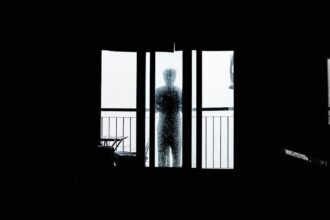A chronotype refers to your natural inclination toward being active at certain times of the day. It’s essentially your internal clock, dictating when you feel most awake and alert versus when you feel sleepy and lethargic. This biological predisposition can significantly influence your daily routines, including when you prefer to sleep, eat, and engage in various activities.
Understanding your chronotype can help you align your lifestyle with your natural rhythms, leading to improved well-being and productivity.
Alternatively, you could be a night owl, thriving in the late hours while struggling to rise with the dawn.
There are also those who fall somewhere in between, known as intermediates. Recognizing where you fit within these categories can provide valuable insights into how to structure your day for optimal performance and satisfaction.
Key Takeaways
- Chronotype refers to a person’s natural inclination towards being a morning person or an evening person.
- The science behind chronotypes involves the study of circadian rhythms and genetic factors that influence sleep patterns and energy levels.
- There are different chronotypes, including the morning lark, the night owl, and those in between, each with unique characteristics and preferences.
- Your chronotype can significantly impact your productivity, with morning larks being more productive in the early hours and night owls being more productive in the evening.
- Tips for optimizing productivity based on your chronotype include aligning your work schedule with your natural energy peaks and creating a sleep routine that suits your chronotype for better rest and productivity.
The Science Behind Chronotypes
The science of chronotypes is rooted in circadian rhythms, which are the physical, mental, and behavioral changes that follow a roughly 24-hour cycle. These rhythms are influenced by external cues like light and temperature, but they are also governed by internal biological processes. Your chronotype is largely determined by genetics, meaning that it is something you are born with rather than a choice you make.
Research has shown that specific genes play a role in determining whether you are an early riser or a night owl. Moreover, studies have indicated that chronotypes can shift over time. For instance, adolescents often experience a delay in their sleep-wake cycles, leading them to stay up later and wake up later.
As you age, your chronotype may shift again, often leading to earlier bedtimes and wake times. Understanding these scientific principles can help you appreciate the complexity of your own sleep patterns and daily energy levels.
Understanding the Different Chronotypes

Chronotypes can be broadly categorized into three main types: morning types, evening types, and intermediate types. Morning types, or larks, tend to wake up early and feel most productive during the first half of the day. They often find it easier to rise with the sun and may struggle with late-night activities.
On the other hand, evening types, or owls, feel more alert and energetic as the day progresses, often peaking in productivity during the late hours. Intermediates fall somewhere in between these two extremes, exhibiting a more flexible approach to their daily schedules. Recognizing your specific chronotype can be enlightening.
It allows you to tailor your activities according to when you naturally feel most alert. For example, if you identify as a morning person, scheduling demanding tasks for the early hours can lead to better outcomes. Conversely, if you are an evening type, tackling challenging projects later in the day may yield superior results.
Understanding these distinctions can empower you to make informed choices about how to structure your day.
How Your Chronotype Affects Your Productivity
| Chronotype | Productivity Level | Recommended Activities |
|---|---|---|
| Early risers (Larks) | High in the morning | Focus-intensive tasks, exercise |
| Evening types (Owls) | High in the evening | Creative tasks, socializing |
| Intermediate types | Mid-range throughout the day | Varied tasks, flexibility in scheduling |
Your chronotype plays a crucial role in determining your productivity levels throughout the day. When you align your tasks with your natural energy peaks, you are likely to experience enhanced focus and efficiency. For instance, if you are a morning person and attempt to tackle complex tasks late at night, you may find yourself struggling to concentrate and produce quality work.
Conversely, if you embrace your natural tendencies and schedule demanding tasks during your peak hours, you will likely find that you accomplish more in less time. Additionally, understanding your chronotype can help mitigate feelings of frustration or inadequacy that arise from trying to conform to societal norms regarding work hours. Many workplaces operate on a traditional 9-to-5 schedule that may not align with your natural rhythms.
By recognizing this mismatch, you can advocate for more flexible work arrangements or adjust your personal schedule to better suit your chronotype.
Tips for Optimizing Productivity Based on Your Chronotype
To optimize productivity based on your chronotype, start by identifying your peak performance times. Once you know when you feel most alert and focused, plan your most challenging tasks for those windows. For morning types, this might mean tackling important emails or project work first thing after arriving at the office.
For night owls, it could involve reserving late afternoons or evenings for deep work sessions. In addition to scheduling tasks according to your chronotype, consider creating an environment that supports your natural rhythms. For example, if you are a morning person, ensure that your workspace is well-lit in the early hours to help stimulate alertness.
If you thrive at night, consider using softer lighting in the evening to create a conducive atmosphere for focused work. Small adjustments like these can significantly enhance your productivity levels.
Chronotypes and Sleep Patterns

Chronotypes have a profound impact on sleep patterns. Your natural inclination toward being a morning or evening person influences not only when you feel awake but also when you feel ready for sleep. Morning types typically find it easier to fall asleep early and wake up refreshed after a full night’s rest.
In contrast, evening types may struggle with early bedtimes and often experience difficulty waking up in the morning. Understanding how your chronotype affects your sleep can lead to better sleep hygiene practices. If you are a night owl trying to conform to an early schedule, consider gradually shifting your bedtime earlier over several days or weeks rather than making abrupt changes.
This gradual adjustment can help your body adapt more comfortably to new sleep patterns without sacrificing quality rest.
Chronotypes and Energy Levels Throughout the Day
Your chronotype directly influences how your energy levels fluctuate throughout the day. Morning types often experience a steady increase in energy after waking up, peaking mid-morning before gradually declining as the day progresses. Evening types may experience a slower start but find their energy levels rising significantly in the afternoon and peaking later in the evening.
Being aware of these energy fluctuations allows you to plan breaks and downtime effectively. If you notice that your energy dips after lunch, consider scheduling short breaks or lighter tasks during that time to recharge before diving back into more demanding work later in the day.
The Impact of Chronotypes on Work Performance
Chronotypes can significantly impact work performance across various domains. Research has shown that individuals who align their work schedules with their natural chronotypes tend to perform better overall. Morning types may excel in roles that require early starts or high levels of concentration during morning hours, while evening types may thrive in creative or analytical roles that allow for flexibility in working hours.
Moreover, understanding how chronotypes affect team dynamics can enhance collaboration within workplaces. If team members have varying chronotypes, recognizing these differences can lead to more effective scheduling of meetings and collaborative projects that accommodate everyone’s peak performance times.
Chronotypes and Personal Relationships
Your chronotype can also influence personal relationships and social interactions. If you are a morning person married to a night owl, for instance, you may find it challenging to synchronize schedules for quality time together. This misalignment can lead to misunderstandings or feelings of neglect if not addressed openly.
To foster healthier relationships despite differing chronotypes, communication is key. Discussing each other’s preferences and finding compromise solutions—such as setting aside specific times for shared activities—can help bridge the gap between differing schedules and ensure both partners feel valued.
Chronotypes and Time Management
Effective time management is closely tied to understanding your chronotype. By recognizing when you are most productive and when your energy wanes, you can allocate time more efficiently throughout the day. This awareness allows for better prioritization of tasks based on urgency and importance while considering when you will be able to tackle them most effectively.
Additionally, employing tools like time-blocking can help maximize productivity based on your chronotype. By dedicating specific blocks of time for focused work during peak hours and lighter tasks during low-energy periods, you can create a balanced schedule that enhances overall efficiency.
Embracing Your Chronotype for Better Productivity
Embracing your chronotype is essential for achieving better productivity and overall well-being. Rather than fighting against your natural inclinations or trying to conform to societal expectations regarding work hours, accept who you are and tailor your life accordingly. This acceptance can lead to increased satisfaction in both personal and professional realms.
By aligning your daily activities with your chronotype—whether it’s adjusting sleep schedules or planning tasks around peak energy times—you can unlock greater potential within yourself. Ultimately, understanding and embracing your unique chronotype empowers you to live more authentically while maximizing productivity in all areas of life.
Chronotype, a concept that refers to an individual’s natural inclination toward the timing of daily periods of activity and rest, plays a significant role in determining one’s sleep patterns and overall well-being. Understanding your chronotype can help optimize your daily schedule for better productivity and health. For more insights into how psychological factors influence our daily lives, you might find this related article on Unplugged Psych interesting. It delves into various psychological concepts and their practical applications. You can read more about it by visiting Unplugged Psych.
WATCH THIS! Is This Hidden ADHD Sign Quietly Wrecking Your Sleep and Draining Your Energy?
FAQs
What is a chronotype?
A chronotype is a person’s natural inclination towards being more alert and active at certain times of the day. It is often described as being a “morning person” or an “evening person.”
How is chronotype determined?
Chronotype is determined by a person’s internal biological clock, also known as the circadian rhythm. This rhythm is influenced by genetics, age, and environmental factors.
What are the different chronotypes?
There are generally three main chronotypes: morning types (also known as larks), evening types (also known as owls), and intermediate types. Morning types tend to feel most alert and productive in the morning, while evening types feel more alert and productive in the evening.
Can a person’s chronotype change?
While a person’s chronotype is largely determined by genetics, it can be influenced by lifestyle and environmental factors. For example, exposure to natural light in the morning can help shift a person’s circadian rhythm towards being more of a morning person.
How does chronotype affect daily life?
A person’s chronotype can affect their sleep patterns, energy levels, and productivity throughout the day. Understanding one’s chronotype can help in optimizing daily routines and schedules for better performance and well-being.




